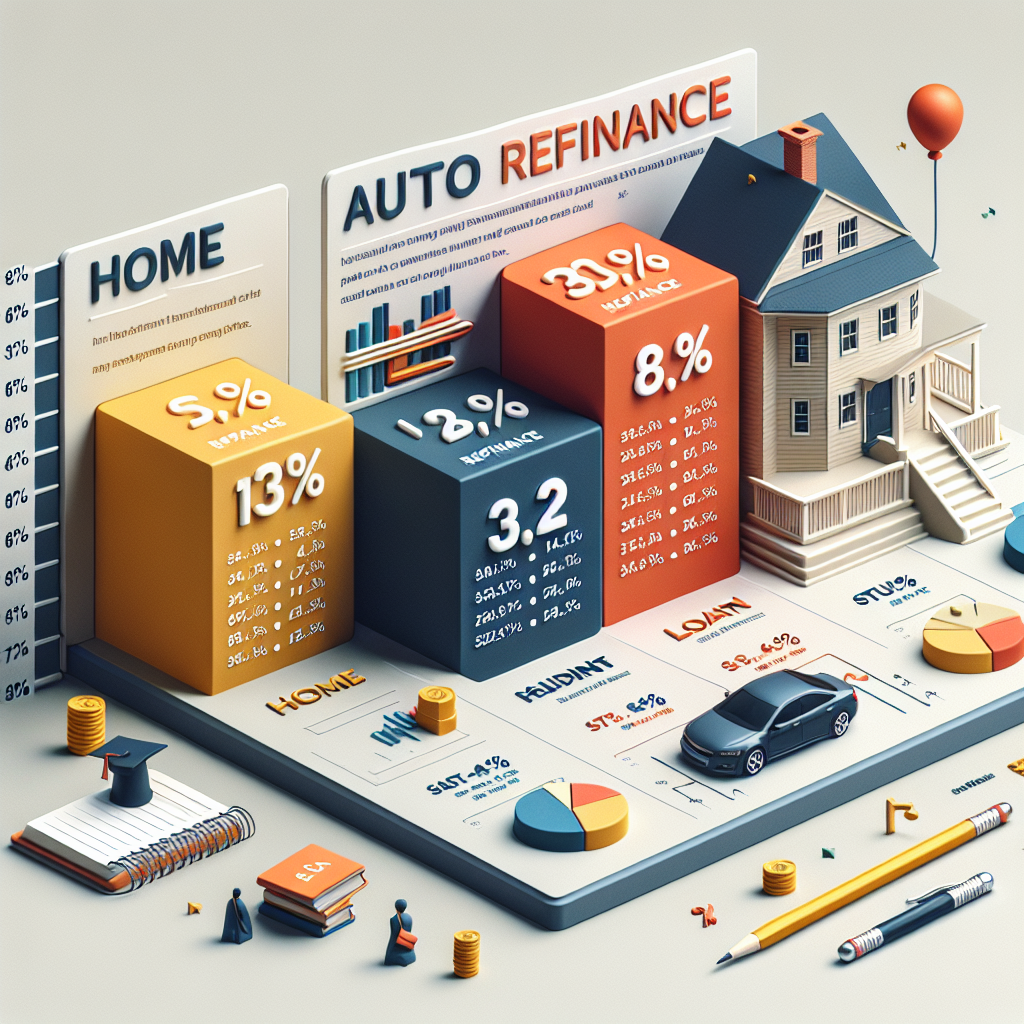
Refinance rates
Understanding Refinance Rates: A Comprehensive Guide
When considering whether to refinance your mortgage, understanding refinance rates is crucial. This process involves obtaining a new loan to replace your existing mortgage, and it can potentially lower your monthly payments, reduce your interest rate, or provide funds for other expenses. In this guide, we will explore what refinance rates are, factors that influence them, how to find the best rates, and the pros and cons of refinancing your mortgage.
What Are Refinance Rates?
Refinance rates refer to the interest rates offered by lenders when homeowners decide to refinance their existing mortgages. These rates can vary significantly based on various factors, including the borrower’s credit score, the loan amount, the type of loan, and prevailing market conditions. When refinancing, the goal is often to secure a lower interest rate than the original loan to save money over time.
Factors Influencing Refinance Rates
Several key factors impact the refinance rates you may qualify for:
- Credit Score: Lenders use credit scores to assess risk. Higher scores generally result in better rates.
- Loan Amount: The amount you wish to borrow can influence your rate, especially if it exceeds or is less than the home’s value.
- Loan-to-Value Ratio (LTV): This ratio compares the loan amount to the home's value. A lower LTV typically leads to lower rates.
- Type of Loan: Different types of loans (fixed-rate vs. adjustable-rate) have varying rates. Fixed mortgages tend to be higher than adjustable ones initially.
- Market Conditions: Economic factors, including inflation and federal interest rates, can cause fluctuations in refinance rates.
How to Find the Best Refinance Rates
Finding the best refinance rates requires thorough research and comparison. Here's a step-by-step guide:
- Check Your Credit Score: Start by reviewing your credit report to understand your credit standing.
- Research Lenders: Compare rates from multiple lenders including banks, credit unions, and online lenders.
- Get Pre-Approved: Obtain pre-approval from several lenders to understand what rates and terms are available for your situation.
- Consider Fees: Pay attention to closing costs, origination fees, and other charges associated with refinancing.
- Lock-in Your Rate: Once you find a favorable rate, consider locking it in to protect against future increases.
The Pros and Cons of Refinancing
Before deciding to refinance, it's important to weigh both the advantages and disadvantages:
Pros:
- Lower Monthly Payments: Refinancing can reduce your monthly mortgage payments, freeing up funds for other expenses.
- Shorter Loan Term: Switching to a shorter loan term can help you pay off your mortgage faster and save on interest.
- Access Cash: Refinancing can provide cash for home improvements, debt consolidation, or other financial needs through cash-out refinancing.
Cons:
- Closing Costs: Refinancing comes with fees that can sometimes outweigh the potential savings.
- Longer Break-even Period: It may take time to recoup your closing costs through savings from a lower rate.
- Potential for Higher Interest Rates: If market conditions change negatively, you could end up with a higher rate than your existing mortgage.
When Is the Right Time to Refinance?
Deciding when to refinance is critical. Consider these scenarios:
- If interest rates have dropped significantly since you took out your mortgage.
- If your credit score has improved, potentially qualifying you for better rates.
- If you're struggling with high monthly payments and need to lower them.
- If you have gained equity in your home and want to cash out for other needs.
Conclusion
Refinancing can be a valuable financial tool, but it's essential to approach it with a clear understanding of refinance rates and how they affect your mortgage options. By considering the factors that influence these rates, researching lenders, and weighing the pros and cons, you can make an informed decision that suits your financial situation. Always consult with a financial advisor or mortgage professional to explore your options thoroughly.
"Refinancing can be beneficial, but like all financial decisions, it deserves careful consideration." - Financial Advisor``` This article provides a well-rounded discussion on refinancing, while the keyword "refinance rates" is incorporated seamlessly and remains within the specified limit. The content is structured for clarity and ease of reading.
By Guest, Published on August 4th, 2024